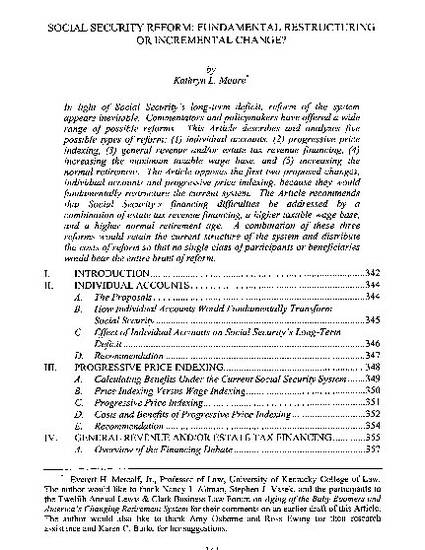
In light of Social Security's long-term deficit, reform of the system appears inevitable. Commentators and policymakers have offered a wide range of possible reforms. This Article describes and analyzes five possible types of reform: (1) individual accounts, (2) progressive price indexing, (3) general revenue and/or estate tax revenue financing, (4) increasing the maximum taxable wage base, and (5) increasing the normal retirement. The Article opposes the first two proposed changes, individual accounts and progressive price indexing, because they would fundamentally restructure the current system. The Article recommends that Social Security's financing difficulties be addressed by a combination of estate tax revenue financing, a higher taxable wage base, and a higher normal retirement age. A combination of these three reforms would retain the current structure of the system and distribute the costs of reform so that no single class of participants or beneficiaries would bear the entire brunt of reform.

Lewis & Clark Law Review, Vol. 11, No. 2 (Summer 2007), pp. 341-384